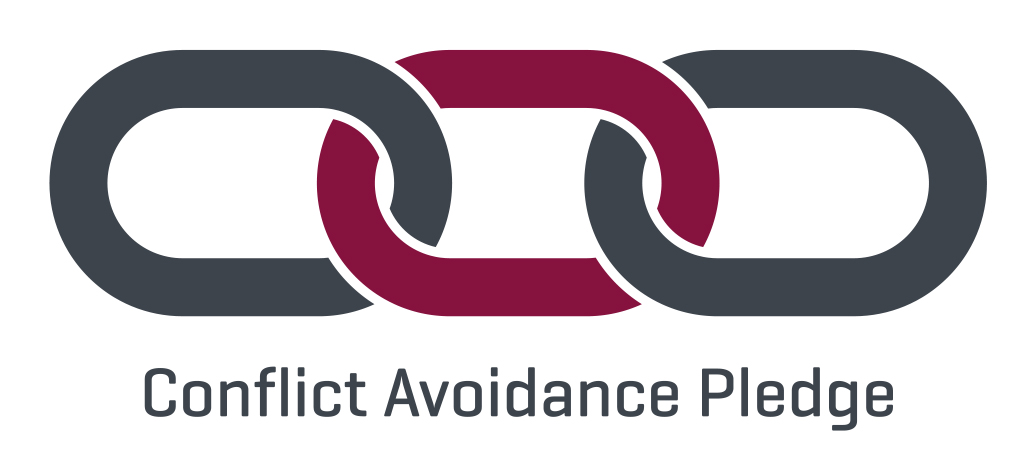
by Clair Mooney | May 13, 2021 | Main News Feed, Technical, Transformation
This information is for general background knowledge concerning government’s proposals with Building a Safer Future. Subject to parliamentary scrutiny government proposes to bring the changes into effect from 1 August 2021.
Responding to the announcement FIS Technical Director Joe Cilia stated: “FIS has supported the development of the Building Safety Bill and the Building a Safer Future work that preceded it –we are fully behind these changes, supportive of the approach and encouraged that finally things are progressing to implementation. As with any change there will be some wrinkles, but it is vital that, as a sector we use this regulatory change to drive the ongoing cultural reform that we know construction needs. If members have any comments or questions that they want us to consider and feed in or around how these changes are likely to impact their work, don’t hesitate to get in touch”.
Building safety: Planning Gateway One
Following its consultation in June 2019 on proposals for reform of the building safety regulatory system, the government’s response published in April 2020 set out their plans for change. This involved the introduction of three gateway points which relevant developments / buildings must go through. Currently, relevant buildings are those which are 18m or higher or 7 or more storeys, whichever is reached first, and contain two or more dwellings or educational accommodation.
This has to demonstrate that the planning application incorporates thinking on fire safety.
- Gateway two (Technical design & construction phase)
A building control application will be required, so this gateway provides a hard stop where construction cannot begin until the Building safety Regulator has approved the building control application.
- Gateway three (Current building control completion / final certificate stage)
Provides a hard stop at which the Building Safety Regulator undertakes final inspections and issues a completion certificate. Prescribed documents and information on the as-built building will be required. Information must be handed over to the person9s) responsible for the building in use.
More information on Gateway one
This has two elements:
- Requires the developer to submit a fire statement setting out fire safety considerations specific to the development with a relevant application for planning permission for development which involves one or more relevant buildings, and
- To establish the Health & Safety Executive as a statutory consultee for relevant planning applications.
These requirements will be introduced via secondary legislation.
The fire statement must be submitted on a form published by the Secretary of State – see attachment for a draft fire statement form. (Click here view draft fire statement guidance). The questions to be answered will include information on:
- The principles, concepts and approach relating to fire safety that have been applied to each building in the development
- Site layout
- Emergency vehicle access and water supply for firefighting purposes
- What, if any, consultation has been undertaken on issues relating to the safety of the development and what account has been taken of this
- How any policies relating to fire safety in relevant local development documents have been taken into account.
Fire statements will be required to include information on the entire development site as set out on the plan which identifies the land to which the application relates.
How are the fire statements different from the requirements of building regulations or the Fire Safety Order?
The fire safety matters contained in a fire statement are relevant only to the extent they are relevant to land use planning. The level of detail and focus of information should not contain the breadth and depth of information on fire safety which will be submitted at building control application stage. Requirements of the fire statement at planning stage will not duplicate or require compliance with the building regulations or the Fire safety Order and local planning authorities will not be responsible for any building regulation matters or the enforcement of building control requirements.
Change of use applications
Applications for permission for a material change of use of land or buildings will require a fire statement unless the application is for:
- A material change in use of a relevant building and the material change of use would result in the building no longer being a relevant building
- A material change in use of land or buildings within the curtilage of a relevant building.
Consultation between local planning authorities and HSE
A local planning authority is required to consult HSE before granting planning permission for:
- Developments which will involve or is likely to involve the provision of a relevant building
- Development of an existing relevant building except where the development consists of a material change in use of a relevant building which would result in a building no longer being a relevant building
- Development within the curtilage of a relevant building in the case of development consisting of a material change in use of land or building within the curtilage of the building.
A local planning authority must consult HSE on fire safety before granting permission to develop land without compliance with conditions if the authority considers it appropriate to do so.
For more information on Planning gateway one please click here.

by Oscar Venus | Apr 30, 2021 | Main News Feed, Transformation
Regulation of the construction industry is essential for a safer and more productive future, election hopefuls from Scotland’s main political parties told a special digital hustings hosted by the Construction Industry Coronavirus (CICV) Forum
The importance of skills and training in the industry also won unanimous cross-party agreement from panellists during the exclusive event held online this week.
Support for reform of procurement practices and a review of VAT on domestic repairs were other positive talking points – supporting the Forum’s own manifesto suggestions for ways to improve the industry.
The hustings, held via webinar on Tuesday 27 April, featured five candidates currently facing election to the Scottish Parliament:
- Carole Ford, Scottish Liberal Democrats
- Monica Lennon, Scottish Labour
- Laura Moodie, Scottish Greens
- Alexander Stewart, Scottish Conservative and Unionist
- Kevin Stewart, SNP.
Answering questions from senior Forum representatives and members of a selected audience, all panellists agreed that regulation was essential for the future of the construction industry.
Kevin Stewart said: “It should be the aim of all of us to drive up standards and safety and build trust in people doing day to day work. Why is a security guard a regulated professional when a plumber is not?
“We need to have real debate about the regulatory issues, and a consensus about moving forward on regulation. The Grenfell Inquiry highlights the need to have occupations regulated to keep people safe and give public confidence in construction work.”
Ms Ford agreed, saying: “Professional regulation’s primary purpose is to protect the public, maintain high standards and protect qualifications and standards in the sector.
“The cowboys are doing no favours to those who are properly qualified, so we are totally committed to all measures which would support consumers and protect standards and professional qualifications, and totally in support of having a well-regulated, well respected construction industry which has the confidence of the public.”
Also in favour of regulation was Ms Lennon, who said: “It is important that qualified tradespeople are recognised for their experience and their competence, meaning the public will have confidence in who is coming into their homes or workplace.
“It makes sense to give people confidence in their work and that they will work safely and have pride in what they do, so we fully support measures to improve regulation and improve public safety.”
Training and apprenticeships ‘vitally important’
The importance of skills, training and apprenticeships in the sector was another topic on which all panellists were in full agreement.
Alexander Stewart said: “Economic growth is the cornerstone for this recovery, and construction plays a vital role in that. Skills and training apprenticeships are vitally important and we fundamentally believe that there should be more funding put into it.
“We want to bring people back and get more new people into the industry and ensure that women have more opportunity to become more involved. We also want economic growth, which will only come about through investment in training and support mechanisms.”
Ms Lennon concurred: “Jobs are at the top and at the heart of our manifesto and our vision for the next five years is a roadmap to recovery that focuses on skills – up-skilling, re-skilling and how we can support local government to take on apprentices and use a talented workforce in Scotland to retro-fit homes to tackle fuel poverty and create new jobs in construction and manufacturing.”
Procurement ‘a bugbear that needs resolved’
Questions on procurement reform had been raised by several Forum members ahead of the husting – and again, all five panellists were firm in their convictions that change is needed.
Ms Moodie said: “We believe public procurement could be a real growth boost for small, local businesses that are socially and environmentally responsible and we are committed to reforming procurement requirements that could fulfil that.
“We want to make sure Scottish businesses capture more of the supply chain opportunities, especially from the rise in the growing renewable industry and I believe there is a lot of room for improvement in terms of accessibility and use of online procurement tools. We would also like to see more support for small businesses so they can compete on a level playing field with bigger companies in terms of bidding for the work.”
Both Mr Stewarts agreed that public sector procurement should focus on “best value and not cost” – a key part of the manifesto released last month by leading Forum member SELECT.
Ms Lennon added: “Procurement is quite simply a bugbear that needs resolved and there are huge opportunities around local engagement and low carbon innovation. SMEs are the lifeblood of our economy and we will reorientate procurement to make sure it works for businesses in Scotland.”
VAT rules ‘a burden on business’
The Forum’s manifesto proposals to mitigate the imposition of VAT on domestic repairs, innovations, and green energy projects, gained the support of all the candidates.
Ms Moodie said it was a “burden on businesses” when they were trying to expand and develop, while Ms Lennon said any changes would unlock plenty of opportunities.
Ms Ford agreed, adding: “The current VAT system is regressive and holding back demand for vital energy efficiency improvements and retrofits.”
Kevin Stewart was also in agreement, adding that VAT was not a devolved matter but that he wanted it reduced or abolished for refurbishment repairs and regeneration projects.
Homes ‘need to be fit for purpose’
Panellists also responded to one audience member’s point that a recent survey revealed that 52 per cent of homes are not wind and watertight, with £3.8bn spent annually on their repair and maintenance.
Ms Ford replied that in the west of Scotland the factoring issue in tenements needs looked at as well as that of owners’ responsibilities, saying: “The Edinburgh solution has its own problems, but owners and the responsibilities of multi-occupancy properties needs reviewed.”
Kevin Stewart spoke of “educating people” about the importance of properties being wind and watertight and the need to be ambitious in helping more, while namesake Alexander added: “Homes need to be fit for purpose and there is a need to invest in the sector.”
Praise for ‘collective expertise’
Finally, there was one more thing all the panellists agreed upon – the excellent work of the CICV Forum.
The unique collective was formed in early March 2020 in response to the urgent COVID-19 threat and now comprises 29 leading construction trade and professional associations.
Alexander Stewart said: “It’s so important that the Forum is at the table as you have boots on the ground and work closely together to get the plans put into place. All the ideas in the CICV Forum manifesto are very good and we would support you in achieving them.”
Ms Ford agreed, saying: “The level of detail in CICV Forum documents is only possible because of your collective expertise. Working together has generated documentation that is a lot better than if carried out by one organisation.”
Kevin Stewart added: “The Forum has been at forefront of promoting working safely and long may it stay at the table with government. In particular I would like to pay tribute to the construction character Campbell who has been used to promote messaging through your clever use of social media.”
Forum actions include lobbying the Scottish Government to influence policy and push for positive action, as well as providing expert advice on important sector issues including commercial, employment, planning, skills, and health and safety.
Hustings ‘a resounding success’
The hustings format was the brainchild of Gordon Nelson, Scotland Director of the Federation of Master Builders, a key member of the Forum.
He said: “From the feedback we have received from the sector, it was clear that the hustings event was a resounding success and generated a wealth of constructive and thought-provoking answers from our panellists.
“It proved also that construction is very much at the heart of Scotland’s recovery, and that all parties are committed to rebuilding together and investing in a safer and fully skilled industry that will benefit the whole nation.”

by Oscar Venus | Apr 16, 2021 | Building Safety Act, Market data, Transformation
FIS has written to the Welsh Government to formally support the CPA response to the Safer Buildings in Wales consultation and highlighted the confusion caused by Regulation 7 and challenges in building classification. On the whole the consultation sets out an achievable path for Welsh Regulations to embrace the fundamental elements of the Building Safety Bill that is expected to be passed into law before the summer recess.
The consultation focussed on 7 key areas.
- Setting out the scope of the Building Safety Regime
- The Building Safety Regime (Design and Construction Phase)
- The Building Safety Regime (Occupation phase)
- Residents: Roles and Responsibilities
- Raising Concerns
- Regulating the Building Safety Regime
- General Requirements in Relation to Fire Safety Equipment
FIS is particularly encouraged by the recognition of the importance of compartmentation and the emphasis outlined and the importance of managing interfaces. We were also able to highlight recent collaborative work in the production of the Fire Stopping of Service Penetrations Guide that can be referenced in future official guidance to support the avoidance of design and construction issues in this space and support one of the aims identified in the consultation in terms of “verifying that all works that breach compartmentation (eg holes drilled through walls) use appropriate and adequate fire-stopping”.
The full response from the CPA can be downloaded here

by Iain McIlwee | Mar 12, 2021 | Main News Feed, Transformation
FIS has joined other leading construction groups in signing the RICS Conflict Avoidance Pledge. Commenting on the signing, FIS CEO, Iain McIlwee stated:
“Signing the pledge underpins our commitment to creating a better environment for our supply chain. It isn’t rocket science, in fact it underpins many of the values we expect of the FIS community and were instilled in me by my Mum! The Pledge is about creating and maintaining good business relationships, and dealing with problems early and amicably and working collaboratively to ensure projects are delivered on time, on budget and without the need to waste huge amounts of money on legal disputes.
The construction industry spends around 1.6% of its total expenditure in the UK on legal services, which compares unfavourably to the UK economy’s median spend of 0.8%. This is because we have created an adversarial environment built on win lose contract negotiations. We have made the contract more important than the project – we have even started calling ourselves contractors rather than constructors! We need to consign this 20th Century thinking to the past as it stands in the way of progress and undermines attempts to drive up quality and reduce waste. The RICS Avoidance Pledge and corresponding Conflict Avoidance Process (CAP) are part of an industry wide commitment to change this and we are eager to support and encourage others in and around our community to do the same”.
Martin Burns, Head of Dispute Resolution Services (DRS), Research & Development at the RICS stated:
“It is great that we have leading trade bodies like FIS supporting the pledge and actively encouraging their members to sign and adhere to the terms laid out. The culture in construction needs to change, but change will openly happen when enough people take that first step to being better and believe that others can and will change too.”
As part of signing, FIS is encouraging all members to sign the Conflict Avoidance Pledge and working with wide industry groups to ensure that the core principles are embedded in future editions of standard construction contracts.
We believe in collaborative working and the use of early intervention techniques throughout the supply chain, to try to resolve differences of opinion before they escalate into disputes.
Wording of the RICS Conflict Avoidance Pledge
We recognise the importance of embedding conflict avoidance mechanisms into projects with the aim of identifying, controlling and managing potential conflict, whilst preventing the need for formal, adversarial dispute resolution procedures. We commit our resources to embedding these into our projects.
We commit to working proactively to avoid conflict and to facilitate early resolution of potential disputes.
We commit to developing our capability in the early identification of potential disputes and in the use of conflict avoidance measures. We will promote the value of collaborative working to prevent issues developing into disputes.
We commit to work with our industry partners to identify, promote and utilise conflict avoidance mechanisms.
On signing the pledge an organisation will be listed on the Conflict Avoidance Directory as Bronze, Silver or Gold.
Bronze verified – This indicates that the individual, business or organisation is a signatory to the CA Pledge.
Silver verified – This indicates that the individual, business or organisation is a signatory to the CA Pledge AND has taken formal steps to incorporate policies to give effect to their commitment to avoiding and effectively managing disputes.
Gold verified – This indicates that the individual, business or organisation is a signatory to the CA Pledge AND has taken formal steps to incorporate policies to give effect to their commitment, conflict avoidance and dispute management procedures AND is actively engaging in such policies.
Visit the FIS Contractual and Legal Hub here






